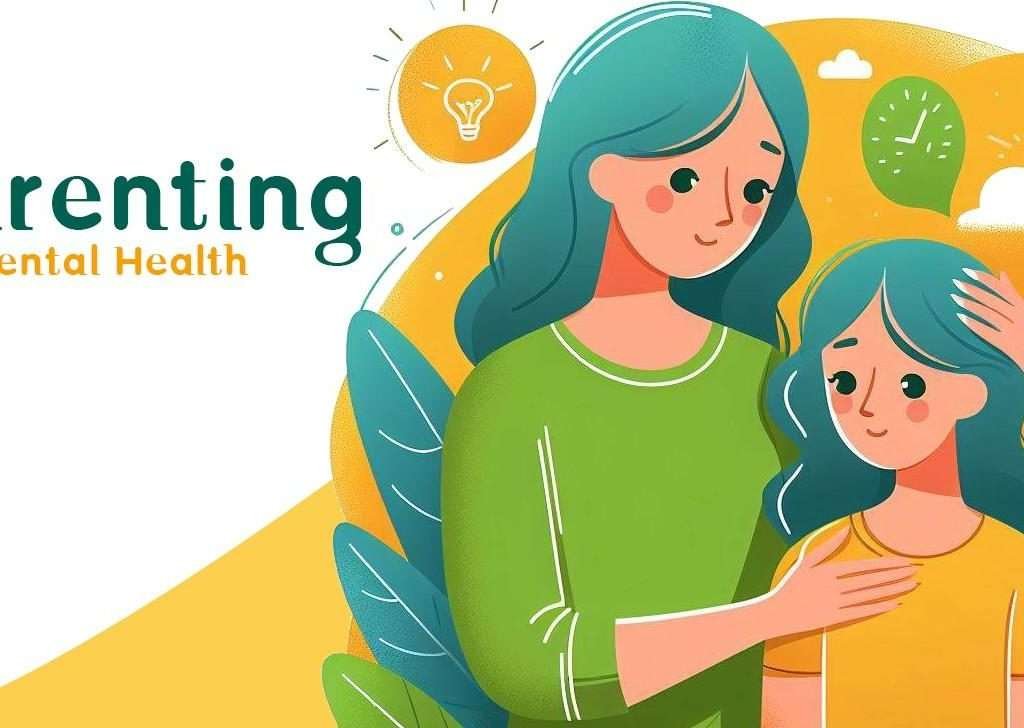Tiredness (fatigue) is a common symptom of Polycystic Ovary Syndrome (PCOS), affecting many individuals with the condition. PCOS is a hormonal disorder that impacts a woman’s ovaries, and the fatigue associated with it can be due to several underlying factors:
Causes of Fatigue in PCOS:
- Hormonal Imbalance:
- PCOS is characterized by elevated levels of androgens (male hormones), which can disrupt the body’s natural energy regulation, leading to feelings of tiredness.
- Insulin resistance, which is common in PCOS, can also contribute to fatigue by causing blood sugar fluctuations.
- Sleep Disorders:
- Women with PCOS may experience sleep apnea or insomnia, which can disrupt sleep patterns and cause daytime fatigue. Sleep apnea, often associated with insulin resistance and obesity, leads to interrupted breathing during sleep, reducing sleep quality.
- Inflammation:
- PCOS is associated with low-grade chronic inflammation, which can exacerbate feelings of tiredness and make it difficult to stay energized throughout the day.
- Weight Gain:
- PCOS can lead to weight gain, which places additional strain on the body, making physical activity more challenging and increasing feelings of fatigue.
- Mental Health Issues:
- Depression and anxiety, which are more prevalent in women with PCOS, can significantly affect energy levels and lead to chronic tiredness. Mental exhaustion from dealing with these conditions can add to physical fatigue.
- Nutritional Deficiencies:
- Some women with PCOS may have nutritional deficiencies, such as vitamin D, magnesium, or B vitamins, which are essential for energy production. These deficiencies can contribute to feelings of tiredness.
Tips for Managing Fatigue with PCOS:
- Maintain Stable Blood Sugar Levels:
- Eat a balanced diet that includes complex carbohydrates (whole grains, vegetables), lean proteins, and healthy fats to keep blood sugar levels stable and prevent energy crashes.
- Avoid sugary snacks and refined carbs, which can cause blood sugar spikes and subsequent drops, leading to fatigue.
- Exercise Regularly:
- Regular physical activity can boost energy levels and improve insulin sensitivity. Activities like walking, swimming, and yoga can help manage fatigue while also improving overall health.
- Improve Sleep Quality:
- Establish a consistent sleep routine by going to bed and waking up at the same time each day.
- Reduce screen time before bed and create a relaxing bedtime environment to improve sleep quality.
- Manage Stress:
- Engage in stress-reducing activities such as meditation, deep breathing, or mindfulness to help combat mental fatigue and reduce the overall impact of stress on your energy levels.
- Address Nutritional Deficiencies:
- Consult a healthcare provider to check for deficiencies in vitamins and minerals like vitamin D, magnesium, and B vitamins. Supplementation may be recommended if deficiencies are found.
- Seek Treatment for Underlying Conditions:
- If you suspect you have sleep apnea or experience other sleep disturbances, speak to a healthcare provider for evaluation and possible treatment.
- Treating any underlying mental health issues like depression or anxiety can also help alleviate fatigue.
- Consider Medical Treatment:
- Medications like metformin (for insulin resistance) or hormonal treatments may help regulate blood sugar levels and hormone imbalances, potentially reducing fatigue.
When to See a Doctor:
If fatigue is persistent, severe, or impacting your daily life, it’s important to consult with a healthcare provider. They can help identify the underlying causes of tiredness related to PCOS and recommend appropriate treatments.
Conclusion:
Fatigue is a common but manageable symptom of PCOS. By addressing the root causes such as hormonal imbalances, insulin resistance, and lifestyle factors, you can improve your energy levels and overall quality of life. Implementing changes in diet, exercise, and sleep can greatly help reduce the tiredness associated with PCOS.
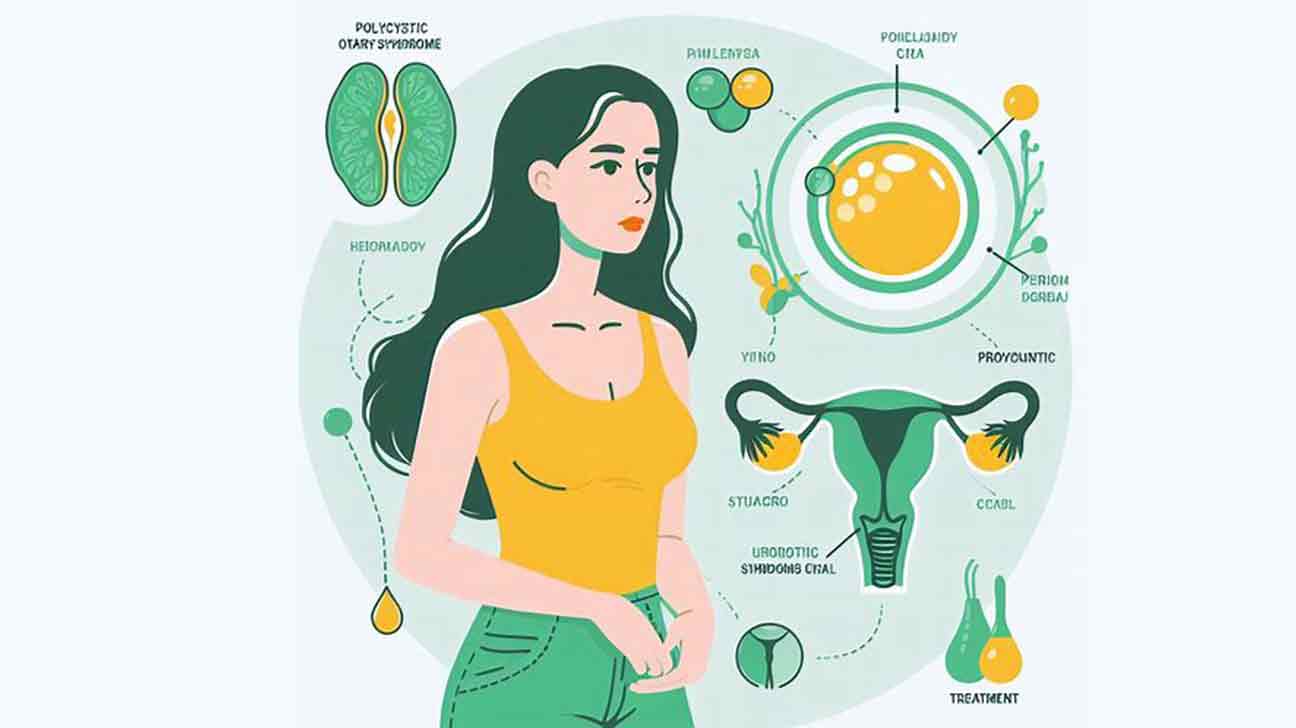
Polycystic Ovary Syndrome (PCOS) is a hormonal disorder characterized by enlarged ovaries and multiple cysts. It is often associated with irregular menstrual cycles, excess hair growth, weight gain, and fertility issues.
Despite its clear symptoms, the exact cause of PCOS is not fully understood, it is believed to be influenced by genetics, family history, and environmental factors. PCOS is often diagnosed through blood tests and ultrasound imaging to check for elevated levels of certain hormones and the presence of ovarian cysts.
While there is no cure for PCOS, it can be managed through lifestyle changes, medication, and hormone therapy based on individual symptoms and fertility desires. Understanding the complex nature of PCOS and its effects on the body is crucial for effective management and improving the quality of life for those affected by this condition.
Polycystic ovary syndrome tiredness
Polycystic Ovary Syndrome (PCOS) symptoms may include irregular or absent periods, excessive hair growth, weight gain, and acne. The exact cause of PCOS is not fully understood, but it may be influenced by genetics, lifestyle, and environment. Diagnosis usually involves blood tests and ultrasounds to support the identification of multiple ovarian cysts, a key diagnostic feature of PCOS.
- Irregular menstrual cycles: Women with PCOS often experience irregular periods, including missed, infrequent, or prolonged cycles.
- Excessive hair growth: Some individuals may develop hirsutism, characterized by excess body hair on the face, chest, abdomen, or back.
- Acne and oily skin: PCOS can lead to increased sebum production, resulting in acne breakouts and oily skin.
- Weight gain and difficulty losing weight: Many women with PCOS struggle with weight management, particularly around the abdomen.
- Male-pattern baldness: Thinning hair or bald spots resembling male-pattern baldness can occur in individuals with PCOS.
Polycystic Ovary Syndrome Physical Exercise
Polycystic Ovary Syndrome can benefit from regular physical exercise, helping manage symptoms like irregular periods and weight gain. Incorporating exercise into your routine can assist in improving overall PCOS management and promoting better hormonal balance.
Polycystic Ovary Syndrome Physical Exercise:
Regular physical exercise is crucial for managing Polycystic Ovary Syndrome (PCOS). Here are some key points to consider:
- Incorporating regular exercise into your routine can help regulate hormone levels and improve insulin sensitivity.
- Engaging in cardiovascular exercises such as walking, cycling, or swimming can aid in weight management and reduce symptoms of PCOS.
- Strength training exercises can help increase muscle mass, which in turn can boost metabolism and aid in weight loss.
- Aim for at least 150 minutes of moderate-intensity exercise per week, spread out over several days to see maximum benefits.
- Consult with a healthcare provider or a fitness expert to tailor an exercise plan that suits your individual needs and limitations.
By incorporating physical exercise into your lifestyle, you can effectively manage PCOS symptoms and improve your overall health and well-being.
Polycystic Ovary Syndrome Electrolysis
PCOS electrolysis can safely and effectively remove unwanted hair for women with Polycystic Ovary Syndrome. This treatment targets hair follicles and helps manage PCOS-related hirsutism, promoting smoother skin and boosting confidence.
Polycystic ovary syndrome (PCOS) is a hormonal disorder affecting reproductive-age women. Among its various manifestations, excessive hair growth is a common concern. Electrolysis is a popular hair removal treatment for managing PCOS symptoms.
- Permanent Hair Removal: Electrolysis is an effective method for removing unwanted hair permanently by targeting hair follicles with electrical currents.
- Suitability for PCOS: As PCOS often causes excess hair growth due to hormonal imbalance, electrolysis can be particularly beneficial for individuals with this condition.
- Targeted Treatment: Electrolysis can be used to address specific areas affected by excessive hair growth, providing customized and precise results.
- Long-term Solution: By destroying hair follicles, electrolysis can significantly reduce hair growth, offering a long-lasting solution for PCOS-related hirsutism.
- Professional Consultation: Prior to undergoing electrolysis, individuals with PCOS should seek guidance from a qualified practitioner familiar with the condition to determine the most suitable treatment plan.
Electrolysis presents a promising solution for managing the unwanted hair growth associated with PCOS, offering individuals a long-lasting and personalized approach to address this common symptom.
Treatment
Polycystic ovary syndrome treatment involves addressing the hormonal imbalance, managing symptoms such as irregular periods, excessive hair growth, and weight gain, and improving fertility. Treatment options may include lifestyle changes, such as diet and exercise, medication to regulate hormones, and fertility treatments if needed.
It is important to consult with a healthcare professional for personalized treatment recommendations.
Polycystic ovary syndrome (PCOS) is a hormonal condition that can cause various symptoms such as irregular periods, excess body hair, weight gain, acne, and infertility. While the exact cause of PCOS is not fully understood, it may be associated with factors like family history, genetics, lifestyle, and environment.
If you’ve been diagnosed with PCOS, you may be wondering about the available treatment options. Here are some treatment approaches that can help manage PCOS:
- Lifestyle changes:
- Maintaining a healthy diet: Eating a balanced diet that includes plenty of fruits, vegetables, whole grains, and lean proteins can help manage PCOS symptoms.
- Regular exercise: Engaging in regular physical activity can help improve insulin sensitivity and aid in weight management, both of which can benefit women with PCOS.
- Weight loss: Losing even a modest amount of weight can significantly improve symptoms for women who are overweight or obese.
- Medications:
- Birth control pills: Oral contraceptives can help regulate menstrual cycles and reduce androgen levels in women with PCOS.
- Anti-androgen medications: These medications can help reduce the effects of excess androgen production, such as acne and excess hair growth.
- Metformin: This medication is often prescribed to improve insulin sensitivity and help regulate menstrual cycles in women with PCOS.
- Fertility medications: For women who are trying to conceive, certain medications like Clomid can help stimulate ovulation.
- Other treatments:
- Insulin-sensitizing drugs: Medications like thiazolidinediones can help improve insulin resistance and regulate menstrual cycles in women with PCOS.
- Laser hair removal: For women who experience excessive hair growth as a result of PCOS, laser hair removal can be a long-term solution.
- Surgery: In some cases, a procedure called ovarian drilling may be recommended to help stimulate ovulation in women with PCOS who haven’t responded to other treatments.
It’s important to remember that the most appropriate treatment plan for PCOS varies from person to person. It’s best to consult with a healthcare provider who specializes in reproductive health to discuss your symptoms, concerns, and treatment options. With the right approach, PCOS can be effectively managed, allowing women to live healthier and more fulfilling lives.
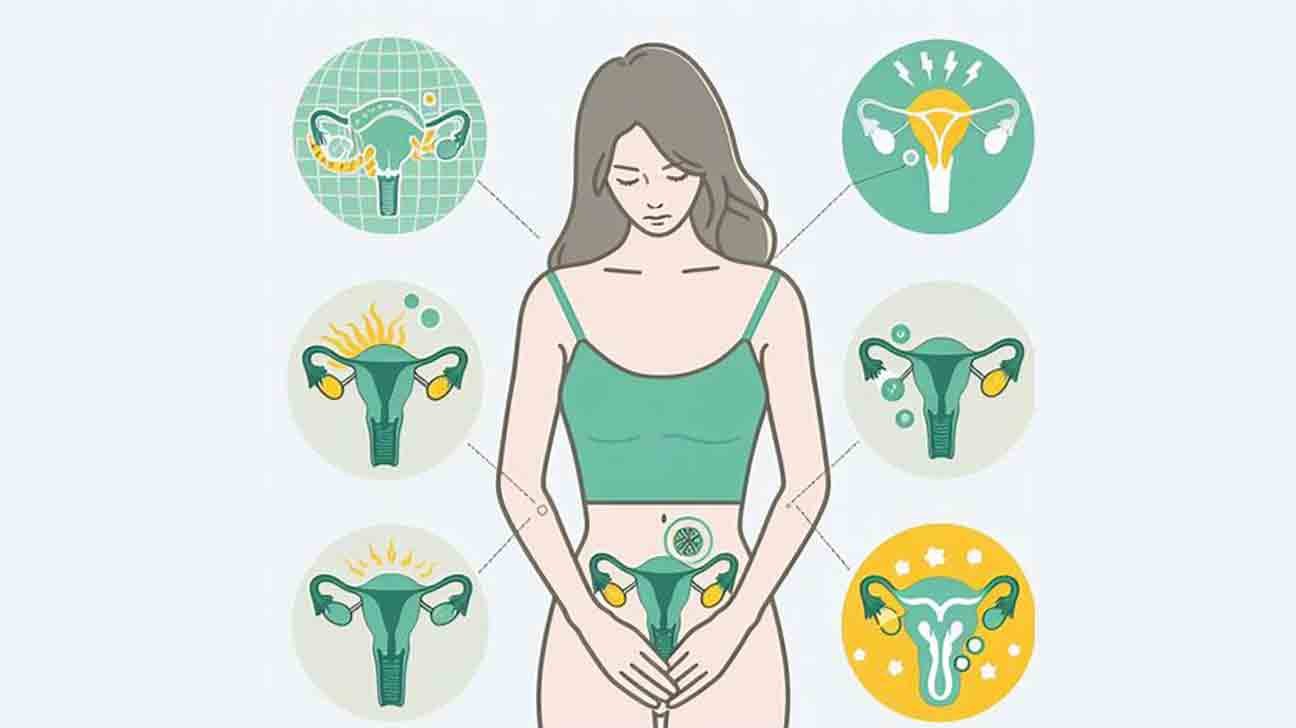
Hair Growth Polycystic Ovary Syndrome
Polycystic Ovary Syndrome (PCOS) can lead to hair growth on the face, chest, and back due to hormonal imbalances. Irregular periods and infertility are common symptoms, but proper diagnosis and treatment can help manage the condition’s effects. Seeking medical care and understanding the different types of PCOS is crucial for managing the syndrome.
Hair growth is a common symptom of Polycystic Ovary Syndrome (PCOS). Women with PCOS may experience excessive hair growth on their face, chest, stomach, and back, a condition known as hirsutism. This is caused by an imbalance in hormones, particularly an increase in testosterone levels.
Here are some key points to understand about hair growth and PCOS:
- Excessive hair growth, known as hirsutism, is a common symptom of PCOS.
- Hirsutism is caused by an imbalance in hormones, specifically higher levels of testosterone.
- The excess hair growth can occur in areas such as the face, chest, stomach, and back.
- Women with PCOS may also experience male-pattern baldness or thinning hair.
- Hair growth can have a significant impact on a woman’s self-esteem and body image.
- Treatment options for managing hair growth in PCOS include hormonal contraceptives, anti-androgen medications, and hair removal methods such as shaving, waxing, and laser therapy.
Hair growth in PCOS can be distressing for many women, but it is important to remember that there are treatment options available to manage this symptom. If you are experiencing excessive hair growth, it is recommended to consult with a healthcare professional who can provide guidance and appropriate treatment options.
Symptoms Of Polycystic Ovary Syndrome
Polycystic Ovary Syndrome presents with symptoms like irregular periods, excessive hair growth, and weight gain. Other signs include acne, thinning hair, and difficulty getting pregnant due to irregular ovulation. Early detection and treatment are crucial for managing PCOS effectively.
What Are The Symptoms Of Polycystic Ovary Syndrome (pcos)?
Polycystic ovary syndrome (PCOS) presents a range of symptoms that can vary in severity and combination. Some common symptoms include:
- Missed or irregular periods, or very light periods.
- Enlarged ovaries with multiple cysts.
- Excess body hair, particularly on the chest, stomach, and back (hirsutism).
- Weight gain, especially in the abdominal region.
- Acne or oily skin.
- Male-pattern baldness or thinning hair.
- Infertility.
How Do Symptoms Of Pcos Affect Women?
The (PCOS) can have diverse effects on women’s health and well-being:
- Irregular periods may contribute to difficulties in conception and pregnancy.
- Excess body hair can impact self-esteem and body image.
- Weight gain and abdominal fat accumulation may increase the risk of metabolic disorders.
- Dermatological concerns, such as persistent acne and oily skin, can affect mental health and confidence.
- Thinning hair or male-pattern baldness can cause emotional distress and psychological impact.
- Infertility can lead to emotional stress and concerns about fertility treatment options.
Why Is Early Recognition Of Pcos Symptoms Crucial?
Recognizing the symptoms of polycystic ovary syndrome (PCOS) at an early stage is vital for several reasons:
- Early diagnosis allows for timely intervention and management of the associated health concerns.
- Identifying symptoms can enable women to seek appropriate medical advice and support.
- Understanding the signs of PCOS promotes proactive health management and may prevent potential complications.
- Early recognition is essential for addressing fertility concerns and planning for family goals.
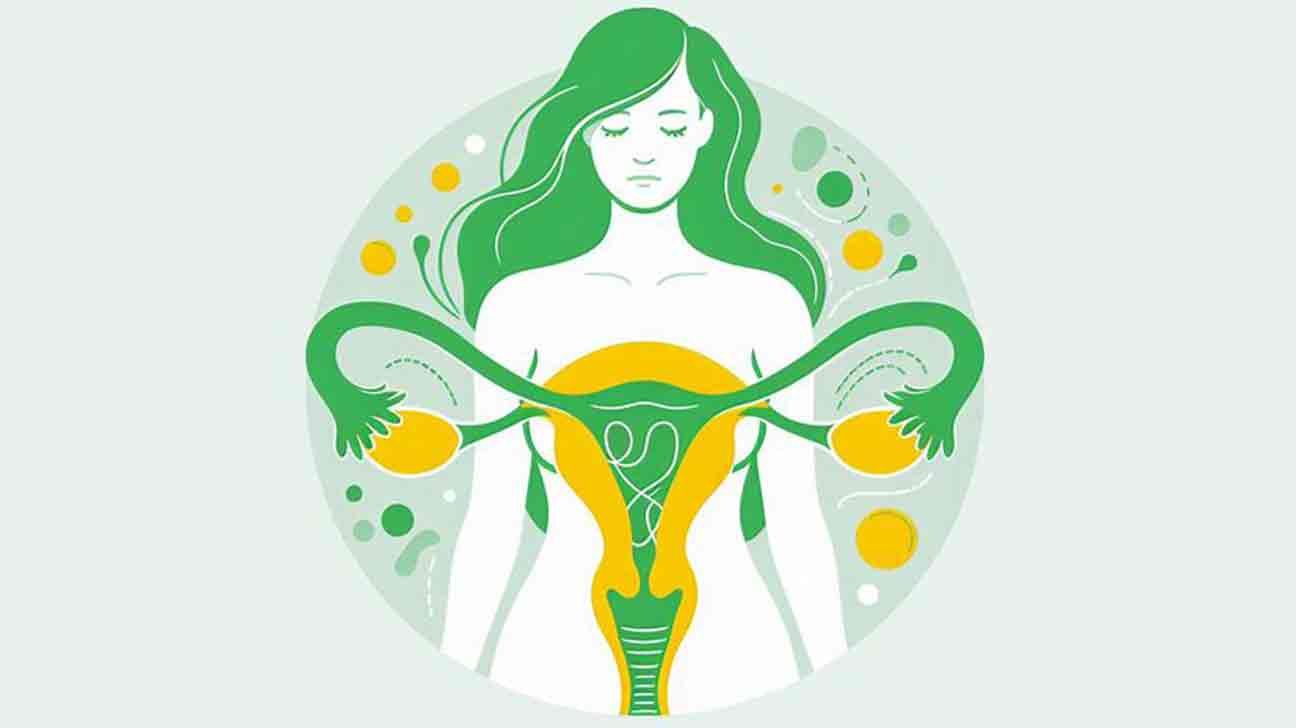
Polycystic Ovary Syndrome Weight Loss
Polycystic ovary syndrome, or PCOS, can make weight loss challenging due to hormonal imbalances and insulin resistance. Managing diet and regular exercise can help improve symptoms and aid in weight loss for those with PCOS. Consulting with healthcare providers can provide personalized approaches for effective weight management.
Polycystic ovary syndrome (PCOS) can often lead to weight gain and difficulty losing weight due to hormonal imbalances. Here are some essential tips for managing weight and promoting weight loss with PCOS:
- Balanced Diet:
- Prioritize a balanced diet rich in whole foods such as fruits, vegetables, lean proteins, and whole grains to support weight management.
- Regular Exercise:
- Engage in regular physical activity, including both cardiovascular exercises and strength training, to help boost metabolism and promote weight loss.
- Mindful Eating:
- Practice mindful eating techniques, such as listening to your body’s hunger cues and eating slowly to avoid overeating and support weight control.
- Managing Stress:
- High stress levels can exacerbate weight gain in individuals with PCOS. Incorporate stress-reducing activities such as meditation, yoga, or deep breathing exercises into your routine.
- Consulting a Healthcare Professional:
- It is advisable to work closely with a healthcare provider or a registered dietitian specializing in PCOS to create a personalized weight loss plan tailored to your specific needs.
By adopting a holistic approach that combines a nutritious diet, regular physical activity, stress management techniques, and professional guidance, individuals with PCOS can effectively manage their weight and support their overall health and well-being.
Polycystic Ovary Syndrome Icd 10
Polycystic Ovary Syndrome, identified by ICD-10 code E28. 2, is a hormonal disorder linked to irregular periods, ovarian cysts, and various symptoms like hair growth, weight gain, and infertility. Accurate diagnosis typically involves blood tests and ultrasound examinations to confirm the presence of multiple cysts on the ovaries.
Treatment options may include medication, lifestyle changes, and fertility assistance.
Polycystic ovary syndrome (PCOS) is a common hormonal disorder among women of reproductive age. It presents various challenges in diagnosis and treatment, underlined by the complexity of its symptoms and manifestations.
Understanding Polycystic Ovary Syndrome Icd 10:
- ICD-10 Coding:
- ICD-10 code for PCOS is E28.2, which falls under the “Endometriosis, ovarian dysfunction, and abnormal bleeding” category.
- Diagnostic Criteria:
- The three main criteria for diagnosing PCOS according to ICD-10 include hyperandrogenism, ovulatory dysfunction, and polycystic ovaries on ultrasound.
- Documentation Importance:
- Accurate ICD-10 coding is crucial for appropriate classification, treatment planning, and reimbursement in healthcare settings.
Management And Monitoring:
- Pharmacological Interventions:
- Treatment focuses on managing symptoms such as irregular periods, acne, and hirsutism through oral contraceptives, anti-androgen medications, and insulin-sensitizing agents.
- Lifestyle Modifications:
- Weight management, exercise, and dietary changes play a pivotal role in improving insulin resistance and overall quality of life for individuals with PCOS.
Key Takeaways:
- Multifaceted Approach:
- Effective management of PCOS encompasses a combination of medication, lifestyle adjustments, and regular monitoring of symptoms.
- Individualized Care:
- Tailoring treatment plans to each patient’s unique symptoms and concerns is essential in optimizing outcomes and long-term health.
- Navigating the complexities of polycystic ovary syndrome in clinical practice requires a comprehensive understanding of its diagnostic criteria, coding implications, and holistic management strategies. By prioritizing individualized care and ongoing support, healthcare providers can empower women with PCOS to better manage their condition and enhance their overall well-being.
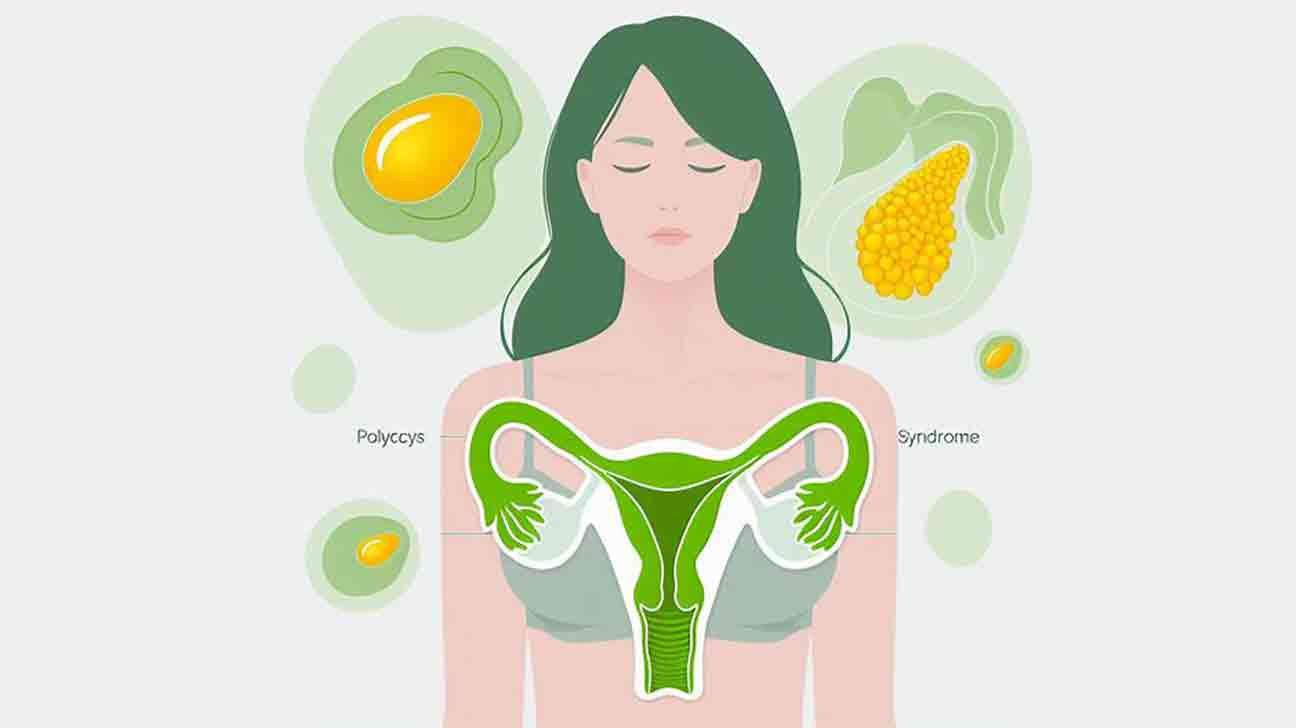
Frequently Asked Questions
What Are The Warning Signs Of Pcos?
Common warning signs of PCOS include irregular or no periods, difficulty getting pregnant, excessive hair growth, weight gain, thinning hair, oily skin or acne. Unfortunately, there is currently no cure for PCOS, but treatments can address symptoms and hormonal imbalances.
Can Pcos Go Away?
PCOS cannot go away completely as there is no cure. Treatment focuses on managing symptoms and hormonal imbalances, especially for those not seeking pregnancy.
What Does A Pcos Flare Up Feel Like?
A PCOS flare up can feel like intense pain in the abdomen, irregular periods, excessive hair growth, and fatigue.
What Not To Do If You Have Pcos?
To manage PCOS, avoid sugary foods, excessive stress, sedentary lifestyle, and skipping meals. Limit processed foods and prioritize a balanced diet with regular exercise.
Conclusion
Polycystic Ovary Syndrome can greatly impact a woman’s health, but with early diagnosis and proper management, it is possible to lead a healthy and fulfilling life. By understanding the symptoms, seeking medical care, and discussing personalized treatment options, women can take control of their health and well-being.
Some common signs and symptoms of PCOS include irregular periods, excessive hair growth (hirsutism), acne, and polycystic ovaries detected via ultrasound. PCOS can also lead to fertility issues, weight gain or difficulty losing weight, and long-term health problems like diabetes and heart disease.
While there’s no cure for PCOS, treatment focuses on managing symptoms and reducing the risk of complications. This may involve lifestyle changes like maintaining a healthy diet and exercise routine to manage weight and improve insulin sensitivity. Medications can also be prescribed to regulate menstrual cycles, reduce androgen levels, and assist with fertility if desired. It’s essential for women with PCOS to work closely with healthcare providers to tailor a treatment plan that meets their individual needs and goals.
It’s important to stay informed and proactive in managing PCOS to minimize its impact on daily life.

